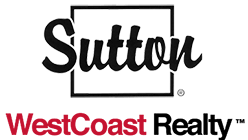
Vancouver’s Next Moves: New 10-Year Housing Targets and a 3-Year Plan to Make It Happen
Vancouver’s Ambitious Housing Targets: A Step Towards a Sustainable Future
Source: Storeys
Overview
The City of Vancouver is updating its housing supply targets and introducing a 3-Year Housing Action Plan in response to provincial directives. The revised targets aim to address population growth, housing needs, and new provincial requirements.
Updated Housing Targets
The new 10-year target, spanning from 2024 to 2033, proposes 83,000 new homes, a 15% increase over the previous 2017 target of 72,000 homes. This comprehensive plan includes specific sub-targets:
- 30,000 Purpose-Built Market Rental Units
- 26,500 Strata Condominium Units
- 8,500 Non-Profit Social Housing/Co-op Units
- 7,000 Townhouses, Duplexes, and Multiplexes
- 5,500 Purpose-Built Below-Market Units
- 4,000 Laneway Homes
- 1,500 Supportive Housing Units

Focus on Rental Units
The City aims for 61,600 rental units (75% of the total target), including secondary rental units. Of these, 15,500 units are targeted to be below-market units, encompassing supportive, non-profit, and co-op housing.
Family-Size and Low-Density Units
- 33,400 Family-Size Units (40%)
- 11,000 Low-Density Units (13%)
Comparison with Provincial Targets
The Province has set a five-year Housing Target Order (HTO) of 28,900 units, based on completions. The City’s targets, based on approvals, must exceed provincial numbers to account for potential non-completions.
Challenges and Strategic Responses
City staff highlight the difficulty of meeting the full need for moderate- and low-income housing due to rising costs and higher interest rates. The City plans to deliver 10,000 social and supportive housing units and 5,500 below-market rental units over the next decade.
Three-Bedroom Units
The City acknowledges it cannot meet the provincial recommendation of 22% for three-bedroom units, aiming instead for 14% due to economic constraints and development trends.
3-Year Housing Action Plan
The plan, comprised of 50 actions, leverages the City’s regulatory, investment, and partnership roles. It focuses on three principles: reconciliation, equity, and resilience, and addresses seven key policy areas:
- Housing Need
- Seniors housing strategy
- Housing targets on City-owned land
- Enabling more student housing
- Geographic Equity
- Simplifying apartment district schedules
- Introducing a city-wide development guide
- Implementing 25 village areas from the Vancouver Plan
- Addressing Homelessness
- SRO Intergovernmental Investment Strategy
- Expanding shelter capacity
- Delivering more supportive housing with senior governments
- Community Housing
- Proactive zoning for social and co-operative housing
- Supporting non-profit building acquisitions
- Advancing projects on City-owned land
- Indigenous Housing
- Progressing Jericho Lands project
- Implementing UNDRIP Strategy actions
- Initiating new projects on City-owned sites
- Rental Housing
- Streamlining delivery with pre-approved plans
- Retrofitting existing buildings
- Expanding tenant protections
- Speculation
- Regulating short-term rentals
- Monitoring Empty Homes Tax effectiveness
- Limiting land speculation through Development Contribution Expectations Policy
Council Consideration
The Council will review the updated Housing Vancouver Strategy 10-year targets, the 3-Year Action Plan, and a proposed Rental Housing on City-land – Public Benefits Pilot Rezoning Policy, which aims to reduce reliance on community amenity contributions (CACs) by exempting five rezoning applications if they provide non-tax revenue to the City.
For more information, visit the official City of Vancouver website or contact the housing department.
For more local news and information about new projects, please visit our BLOG PAGE
To view Geoff Jarman’s Listings CLICK HERE

